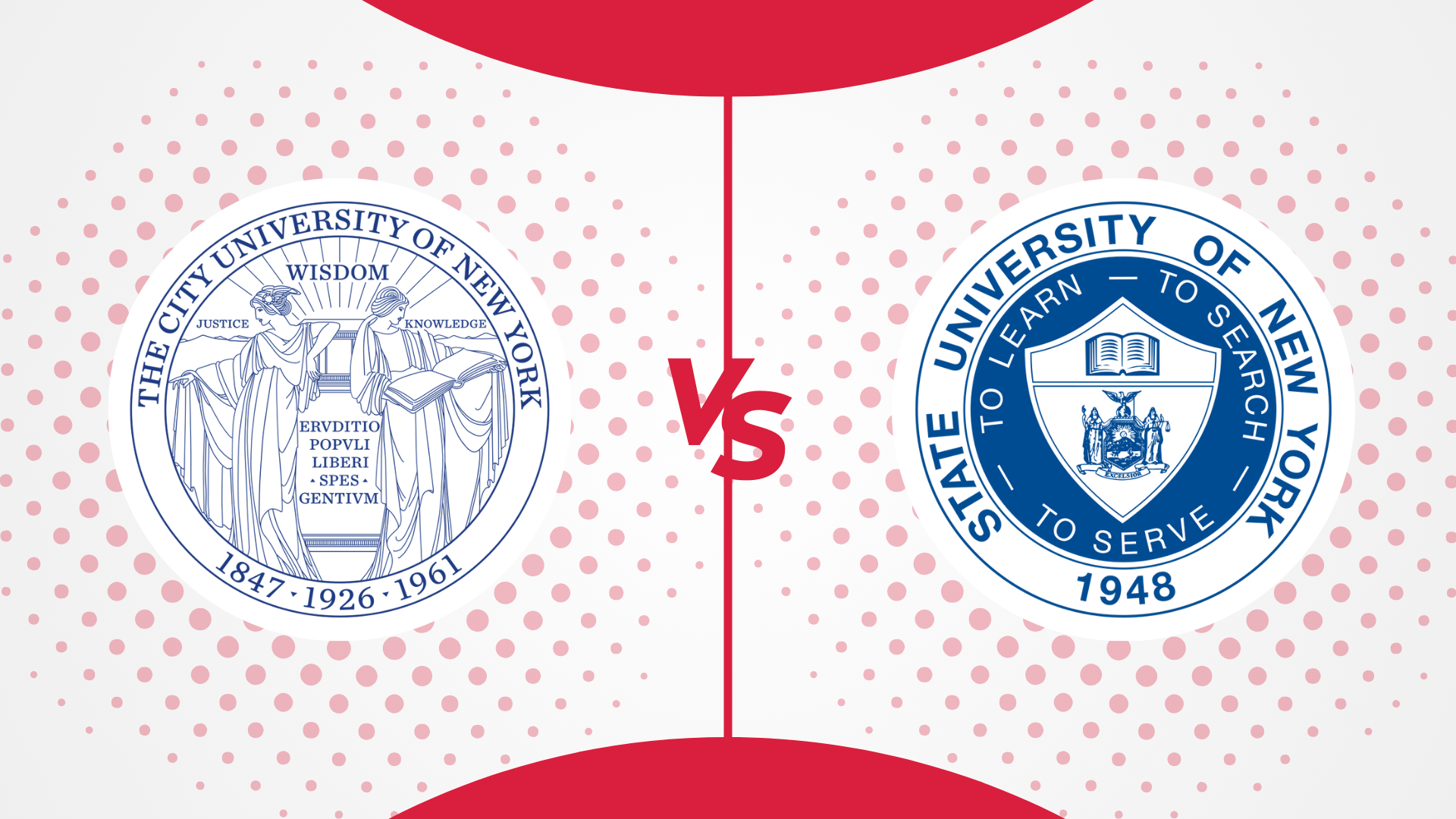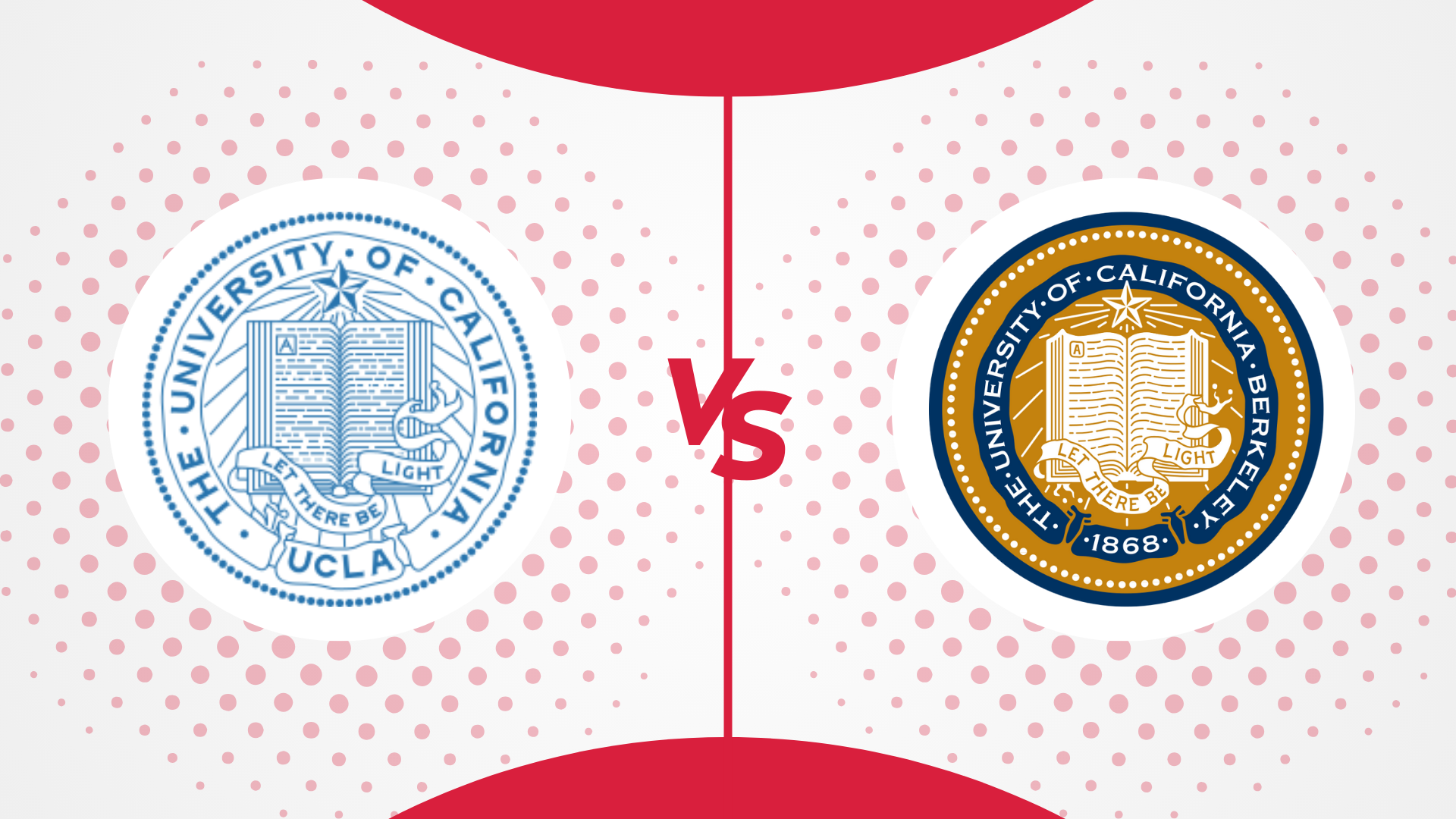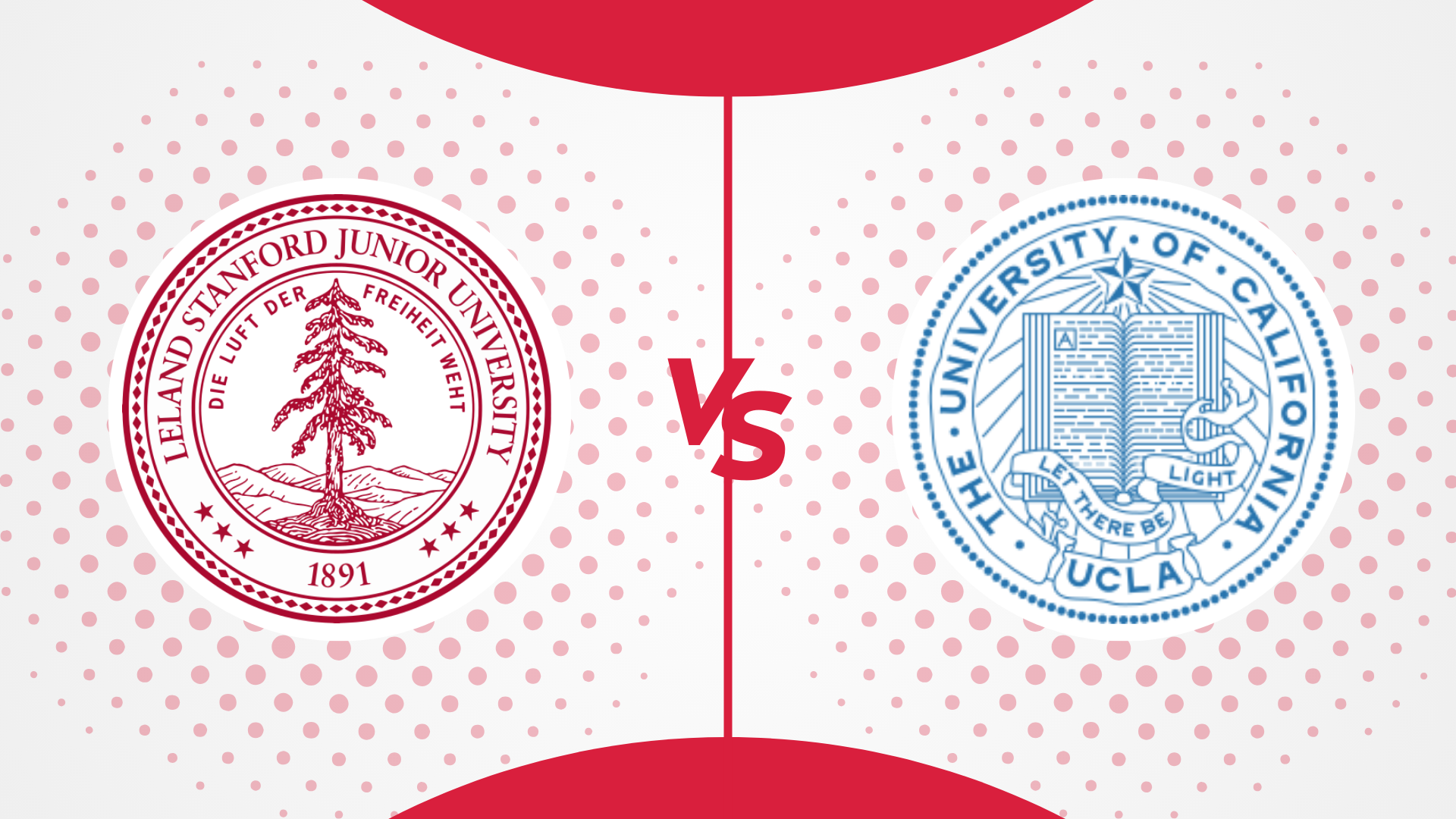Tufts vs BU could be a choice you’re considering if you’re looking at the Boston Metropolitan area for a university option. The area is home to some of the top universities in the world, including Harvard, MIT, Berklee College of Music, Boston College, Boston University, Tufts, and Northeastern, among others. We look at Tufts vs Boston University, which are two prestigious universities known for their various interdisciplinary programs, state-of-the-art research facilities, top-notch faculty, and industry connections.
Keep reading this article to get a comprehensive analysis of Tufts and Boston University across various parameters to make an informed decision about a school best suited for your needs.
A quick look
Tufts and Boston University (BU) are two great schools in the Boston area, but they offer different vibes. Tufts, located in the quieter suburbs of Medford and Somerville, is known for its tight-knit community, small class sizes, and a focus on interdisciplinary learning, with standout programs in international relations, arts, and engineering. Its campus has a more traditional, collegiate feel with lots of green spaces. BU, on the other hand, is in the heart of Boston, with an energetic, urban campus that blends right into the city. It’s much larger, with a wider range of academic programs, including strong offerings in business, communications, and biomedical sciences. BU’s big-city setting means more hustle and bustle, while Tufts feels more personal and close-knit.
Overview of Tufts and BU

With both universities situated about 7 miles from one another in the Greater Boston Area, Tufts and Boston University are two among the best universities in the United States for higher education. Here is a quick overview of how Tufts vs Bu
- BU is a much bigger school with a larger student body when compared to Tufts.
- BU is urban in downtown Boston, while Tufts is more suburban in Medford.
- BU has an open campus that integrates the university buildings into the cit,y while Tufts has a more traditional campus.
- Tufts has a reputation for all areas related to health and medicine and international relations, while BU is known more so for its business, social sciences, media and communication programs.
Brief History and Background
Tufts University
Founded in 1852 as Tufts College by Christian Universalists, Tufts is a private research university in Medford and Somerville, Massachusetts. Initially set up as a small liberal arts college, the university has grown into a top-tier research university that awards master’s, doctoral, and professional graduate programs. The rapid growth of the university also includes the establishment of a medical school in 1893, an engineering school in 1898, a dental school in 1899, and the Fletcher School of Law and Diplomacy in 1933, and the Cummings school of veterinary medicine, Graduate School of Biomedical Sciences, and Friedman School of Nutrition Science and Policy in the 1970s. In 1954, Tufts College became Tufts University.
Today, Tufts is known for its programs in liberal arts, sciences, engineering, medicine and other healthcare disciplines. The university ranks 37th in the country and 179th in the world according to metrics published by US News and World Report and Times Higher Education Ranking 2025.
Boston University
Boston University, or BU, is a private research university founded in 1839 in Boston, Massachusetts. With over 37,000 students from 50 states and over 140 countries, BU offers over 300 programs of study across disciplines and is highly renowned for its eminent faculty, research prowess, and campus life.
An open campus located along Commonwealth Avenue on either side of the Charles River, the university is known for its programs in business and management, engineering, psychology, economics, and communications, among other disciplines. According to US News, the university ranks 41st in the county and 75th in the world, according to Times Higher Education metrics 2025.
Key Statistics and Rankings
Here is a table comparing the key stats and ranks when it comes to BU vs Tufts.
| Tufts | BU | |
| Type | Private Research University | Private Research University |
| Campus | Medford and Somerville, Suburban | Downtown Boston, Urban |
| Nickname | Jumbos | Terriers |
| Mascot | Jumbo, the elephant | Rhett, the Boston Terrier |
| U.S. News National Rank 2025 | 37 | 41 |
| THE World University Rank 2025 | 179 | 75 |
| Undergraduate Student Body | ~ 6,800 | 17,926 |
| Graduate Student Body | ~ 6,400 | 18,074 |
| % of International Enrollment | 13% | 23% |
| Average Acceptance Rate | 10% | 11% |
| Student to Faculty Ratio | 10:1 | 11:1 |
| Number of Undergraduate Programs | 70+ | 300+ |
| Number of Graduate Programs | 160+ | 400+ |
| Research Expenditure | Around $250 million | Around $600 million |
| Number of Athletic Teams | 28 teams in NCAA Division III | 24 NCAA Division I teams |
| Number of Clubs and Student Organizations | 300+ | 450+ |
| Colours | Blue and Brown | Red and White |
Tufts vs Boston University: Academic Comparison

One of the primary factors upon which your decision has to rest is academics. Both BU and Tufts are known for their top notch academic programs and world class faculty. The courses that they offer, their choices and flexibility, ranking, degrees and class sizes, academic calendars, research facilities and budgets can become important factors in deciding which college is best suited for you.
Undergraduate Programs
Program Options: Both BU and Tufts are comprehensive universities that offer a wide range of programs across disciplines. Of the two, Tufts is smaller, with about 70 undergraduate BA/ BSc courses to choose from, while BU is larger with about 300 programs.
They are both members of the Boston Consortium along with Northeastern, Brandeis University, Boston College, Hebrew College, and MIT, among other institutions, and therefore, they allow their students to register for one course per semester at other fellow institutions. This allows more scope for socialisation, networking, and exploring teaching and learning systems in other institutions.
Both Boston University and Tufts allow their students to graduate with double majors and double degrees. Dual degrees result in two separate diplomas, potentially from different departments or schools, while a double major results in a single diploma with two major areas of study. For a student, the fundamental difference is in the credit requirement.
Both universities also offer the option of an integrated masters in some of their disciplines. At Tufts it is called Fifth Year Masters or 4 + 1 degrees while BU calls it Bachelor’s to Master’s program. The requirements include maintaining a higher GPA during your undergraduate study and more intensive coursework. The advantage is that you can graduate with a bachelor’s and a master’s degree within 5 years as opposed to the usual minimum of 6 years.
Ranking and Reputation: Both schools have been consistently ranked among the top universities in the United States by various agencies. Tufts ranks 37th, while BU ranks 41st in the country for 2025, according to metrics published by US News and World Report. In contrast, when it comes to global rankings, BU typically fares better than Tufts, both in the Times Higher Education and QS World University Rankings scales. According to THE, BU ranks 75th in the world, while Tufts is in the 177th spot. Based on QS WUR, BU ranks 108th and Tufts 344th.
Within the US, Tufts has a better reputation than BU, especially due to its smaller student population and lower student-to-faculty ratio. More importantly, while researching universities, one must understand that the overall rank/ reputation of the university is not as important as the standing or rank of a specific department or subject.
Tufts generally is better known for all things medical and health related ranging from medicine, dentistry and veterinary sciences, in addition to its engineering, computer science, psychology and economics programs. Boston University has a reputation for social sciences, business and management programs, communication, computer science and pre-med courses.
Eligibility and Standardised Test Scores: Both Tufts and Boston University are test-optional. They both follow a holistic admission process where an application is evaluated on its own merit to see the overall suitability of an applicant to the university. If an applicant chooses to submit their standardized test score, it will be considered. However, no application will be penalised for not submitting scores.
That said, among those who submit their ACT/ SAT scores, the median range of admitted students at Tufts is between 1480 and 1560, while the range is about 1370 – 1480 at BU. The median score for ACT in both universities is 34.
Looking at other admission requirements, both schools do not have an official minimum high school GPA, but competitive applicants typically have 3.8 on a 4.0 scale for Tufts and about 3.7 – 3.9 for Boston University. For most courses, applicants must display an ability in mathematics, including calculus, science, and English. Most international students are also required to submit IELTS/ TOEFL scores as proof of English language proficiency.
In addition to GPA and test scores, an applicant’s statement of purpose and letters of recommendation also carry weight as part of the application.
Core Curriculum: At the undergraduate level, most universities have a core curriculum that is mandatory for all students. This curriculum typically includes topics from the liberal arts and physical sciences, enabling the student to take on an interdisciplinary approach right from the beginning.
The Tufts general education requirement includes courses in writing, language, world civilizations, and distribution. The distribution requirements are
- Two classes in the humanities
- Two classes in the arts
- Two classes in the social sciences
- Two classes in the natural sciences
- Two classes in the mathematical sciences
BU’s core curriculum, called the BU Hub, is fairly standard. It consists of eight 4-credit foundational courses –– four Humanities courses, two Natural Sciences courses, and two Social Sciences courses.
Class Sizes: When it comes to the student body, Boston University is much bigger than Tufts and has more programs. BU has about 18,000 undergrads, and the number is around 6,500 at Tufts. The student-to-faculty ratio at BU is about 11:1, while Tufts maintains a similar ratio of about 10:1. With an average class size of about 30 students, almost 60 % of classes at BU have fewer than 20 students. Tufts has an average class size of about 20, with about 70% of its classes having fewer than 20 students.
Acceptance Rates: Both schools are fairly equally competitive with acceptance rates of 10 and 11%. It means about 10 in every 100 applications get accepted. While they are not as competitive as tier 1 universities like Harvard, Stanford, or MIT, these acceptance rates show the popularity of these schools among the student community.
Study Abroad: Looking at the number of undergraduate students who choose to do a year or semester abroad, it is about 45% at Tufts and about 40% at BU, across disciplines.
Top Majors:
| Tufts | Boston University |
|
|
Graduate Programs
Graduate Program Options: Tufts has over 160, while BU has over 400 graduate and doctoral programs to choose from. Within the US, Tufts ranks higher but on a global scale, BU fares better, according to both THE and QS WUR. Tufts has a reputation for medicine, engineering specializations, psychology and environmental programs while BU is better known for law, statistics, environmental sciences, health sciences, business and management, AI, psychology and fine arts.
If you look at the graduate student body, BU is bigger than Tufts. BU has about 18,000 master’s and doctoral students, while Tufts has closer to 6,400 grad students.
Unlike UK universities, US universities do not differentiate between MSc and MRes programs. Almost all graduate degrees in the US take about two years to complete and combine classroom learning with research.
College Admissions: The minimum admission criteria in both universities include
- A valid baccalaureate degree and transcripts from a recognised university (GPA varies with departments),
- A strong application form
- A well-written Statement of Purpose (SOP)
- Relevant work experience (for some courses),
- Letters of recommendation (LORs)
- English proficiency test scores (for international students).
- GMAT/ GRE requirements vary depending on the specific program you are applying to.
Top Graduate Programs:
| Tufts University | Boston University |
|
|
Overall and Subject Ranking
| Tufts | BU |
| US News National Ranking 2025: 37 | US News National Ranking 2025: 41 |
| Times Higher Education WUR 2025: 179 | Times Higher Education WUR 2025: 75 |
| QS WUR 2025: 344 | QS WUR 2025: 108 |
| Subject and Other Ranking (Source: US News) | |
|
|
To sum up, both universities offer a wide range of top-notch programs and have a long-standing reputation for academic excellence. In terms of prestige, they are both in a tier right below the Ivy League Universities. That said, Tufts is ranked marginally higher than BU and has a reputation for medicine and allied programs. At the same time, BU is more known for its social sciences, humanities, media and arts programs. However, your decision ought to be based on the rankings and the profile of the department of your choosing, the curriculum that is being offered, the faculty involved, and class sizes rather than the reputation of a university as a whole.
Constituent Schools
The schools and colleges that constitute Boston University are
- Honors College
- School of Medicine
- College of Arts and Sciences
- College of Communication
- College of Engineering
- College of Fine Arts
- College of General Studies
- Faculty of Computing and Data Sciences
- School of Global Studies
- Graduate Medical Sciences
- Graduate School of Arts and Sciences
- School of Dental Medicine
- Questrom School of Business
- Metropolitan College & Extended Education
- Sargent College of Health and Rehabilitation Sciences
- School of Hospitality Administration
- School of Law
- School of Public Health
- School of Social Work
- School of Theology
- College of Education & Human Development
- Division of Military Education
The different courses at Tufts are offered by the following schools and colleges.
- School of Arts and Sciences
- Graduate School of Arts and Sciences
- Graduate School of Biomedical Sciences
- Cummings School of Veterinary Medicine
- School of Dental Medicine
- School of Engineering
- The Fletcher School
- Gerald J. and Dorothy R. Friedman School of Nutrition Science and Policy
- School of Medicine
- School of the Museum of Fine Arts at Tufts University
- Jonathan M. Tisch College of Civic Life
- University College
Note: Both BU and Tufts are members of the Boston Consortium, which allows their students to register for one course per semester at other institutions, including Northeastern, Brandeis University, Tufts, Boston College, Boston University, Hebrew College, and a few specialised courses at MIT.
Research Opportunities
Both Tufts and BU are premier R1 research universities, known for their very high level of research activity and encouraging their students to push the boundaries of their disciplines. BU spends over $600 million on research every year, while Tufts about $250 million.
Known for its interdisciplinary research facilities, Tufts is home to 65 research centres and institutes that integrate scientific work, academic thought, and innovation into policy and practice. The university instils a culture of research and innovation from the undergraduate level. For instance, the university and its researchers were integral in the discovery of drugs that stop a human body from rejecting transplanted organs, coining the term “immunosuppression.” Tufts Medical School also showcased the link between obesity and heart disease.
With about 7,769 publications in the year 2023, Boston University is another institution that thrives on and imbibes the spirit of research and innovation at its core. In the last decade, BU faculty have successfully submitted research projects in healthcare, sustainability, neuroscience, social justice, and many other fields. The university has had major breakthroughs in the nexus of healthcare, racism and gender, developing bionic pancreas, and generally in the field of biomanufacturing.
In essence, both universities provide robust research environments for their faculty and students. They help students develop a research mindset from the undergraduate level, helping their alumni become leaders and catalysts of change in the world.
Key Dates for Application
In this section, we will be looking at the key dates for application and admission into undergraduate programs (Fall semester) to get a sense of the timeline. Graduate schools have a different timeline. It is also recommended that you verify with the specific department / school that you are applying to, just to ensure they do not follow a different cycle.
| Important Dates | Tufts | BU |
| Early Decision (ED) Deadline | ED I – November 4 ED II – January 6 |
ED I – November 1 ED II – January 4 |
| Regular Admissions Deadline | January 6 | January 4 |
| ED Decision Posted in | ED I – Mid December ED II – Early February |
ED I – Mid December ED II – Mid February |
| Financial Aid Application Deadline | February 1 | January 6 |
| Regular Decision Posted in | April 1 | Late March |
| Deadline to accept the offer of Regular admission | May 1 | May 1 |
| Average Acceptance Rate | 10% | 11% |
Admission Options to be considered in the Tufts vs Boston University debate:
- Both schools do not have an Early Action (EA) admission pathway but have two Early Decision routes.
- ED in both universities is binding. It means students who are admitted through ED are contractually bound to enrol in the university and withdraw any other application.
- Both Tufts and BU accept Common Application and QuestBridge. In addition, Tufts accepts the Coalition application by Scoir.
- The application fee at Tufts is $85, while Boston University charges $80 for its undergraduate applications.
Academic Calendar
Both schools follow a semester system when it comes to their academic calendar. A year is divided into the Fall Semester (August/ September – December) and the Spring Semester (January – April/ May). Both schools also have an accelerated/ shorter summer term during which some academic activities take place.
BU vs Tufts: Campus Life and Environment

Here are a few other factors that can make you prefer Boston University to Tufts or the other way around. The university’s location, campus life, and the extracurricular activities available can also become important points of consideration, especially if the universities are otherwise well-matched. So, here are a few other factors that will help you decide when looking at Boston University vs Tufts University.
Campus Size and Facilities
The Tufts campus is located in Medford, while BU is in downtown Boston. Considering that the distance between Tufts and BU is about 7 miles, there is no significant difference in benefits because of their locations. Boston is a city renowned for its history, contemporary culture, arts scene, technology, sports and harsh winters. That said, seven miles is the difference between an urban bustling campus in the middle of the city to a quieter, more suburban location of Tufts.
BU campus is a part of the city and its skyline. The university does not have an enclosed campus but is rather open to students and the public alike. Most BU buildings are located along Commonwealth Avenue, with the Charles River running amidst. The river separates the academic and research buildings from the dorms and residence halls. Only the university’s medical campus is located in the South End neighbourhood. This setup provides BU students easy access to everything the city has to offer while also creating a close-knit atmosphere that is easy to navigate.
Tufts has 4 campuses. The main campus is a beautiful enclosed space in Medford and Sommerville. A classic New England college ethos, this campus houses the School of Arts and Sciences, the Graduate School of Arts and Sciences, the School of Engineering, The Fletcher School, Jonathan M. Tisch College of Civic Life and University College. Other campuses include
- Boston SMFA at Tufts Campus
- Boston Health Sciences Campus
- Grafton Campus (Veterinary Sciences)
The campuses are close enough to one another to facilitate regular interaction and interdisciplinary collaboration and near enough to Boston for students to pursue the many professional, intellectual, and recreational opportunities that the city offers.
In addition to academic and research facilities, both campuses provide state-of-the-art amenities to provide a complete student experience. Boston University, just a short walk away from Fenway Park, is more integrated into the diversity and culture of Boston. Its larger student population and open campus offer greater diversity, better networking and socialising opportunities and direct access to the cultural and social hotspots of the city. In contrast, Tufts is more suburban, quieter, and is limited to the student population on campus.
Student Activities and Organisation
Tufts: Tufts is an NCAA Division III school and member of the New England Small College Athletic Conference (NESCAC). Jumbo athletes compete in 28 varsity sports. Moreover, the university also has 28 club sports—from ice hockey and water polo to Taekwondo and Ultimate Frisbee for fitness and recreation.
In addition to athletics, Tufts has over 300 student organisations, forums, and clubs built around various themes. Moreover, the university also has the Leonard Carmichael Society, an umbrella organization for all service groups on campus, and is the largest organization at Tufts. Be it student government, dance, music, theatre, or pre-professional groups, Tufts has a place for all of its students.
BU: The city’s affinity for sports and its traditions are reflected in the university, with athletics and sports being a significant part of the student experience at BU. Student-athletes compete in 24 NCAA Division I varsity sports. Their hockey team is nationally renowned and has sent more players to the NHL than any other university. Rhett, the Boston Terrier, is the university mascot that brings together the student community with a sense of pride.
In addition to sports, BU has over 500 student organizations covering a wide range of interests. This allows students to explore other passions, develop leadership skills and build friendships. BU is also home to 12 fraternities and sororities which enable an active Greek life.
Housing
Tufts: All new undergraduate students (freshmen) at Tufts are required to live on campus. There are over 25 residence halls at Tufts, including eleven halls dedicated to first-year students. Students in the residence halls organize discussion and study groups, bring in guest speakers, and plan all sorts of social activities together. In addition, the university also has shared apartments and smaller special interest housing. About 70% of Tuft undergraduates live on campus.
Boston University: All freshmen at Boston University are also required to live on campus. This helps freshmen acclimate better to life in college. Undergrads are guaranteed 4 years of housing should they choose to continue living in university-owned housing. Housing at BU typically costs around $19,000 a year, including meal plans.
BU has many housing options including dorms, single or sharing suites, brownstones, and high rises in tree-lined streets. All of them and the student village are situated near the Charles River, making access easy. However, since BU does not have an enclosed campus space, it is important to remember that these are stand alone buildings in the Fenway-Kenmore neighbourhood.
Tufts vs Boston University: Financial Aspects

After academics and campus life, the another important distinction that will help you decide when it comes to Tufts University University vs Boston University is finance. The cost of attendance (tuition), additional expenses such as books, student fees, insurance and housing must be taken into account before making a choice.
Since both are privately owned, they do not offer subsidised tuition rates for in-state students like the other American public universities. Here is a table that will help you compare these two top universities in the matters of fees and scholarships.
| Annual Rates | Tufts | BU |
| Tuition (Bachelor’s) | $69,146 | About $66,700 |
| Average Tuition (Master’s) | $50,000 – $60,000 | Around $63,798 |
| MBA Tuition | $89,496 (for GBA) | $66,670 |
| Housing (Rent + Meal Plan) | $16,000 – $20,000 | Around $19,000 |
| Types of Financial Aid | 1. Grants 2. Student Loans 3. Work Study 4. External Scholarships |
1. Scholarships and Grants 2. Federal aid 3. Work Study Grants 4. External Scholarships |
| International student scholarships |
|
|
| Average financial aid for first year students | $55,617 | $57,882 |
| Admission Decisions | Need aware for international students | Need blind (No need-based aid for international students) |
| Demonstrated Need Cover | 100% of demonstrated financial need for all students, irrespective of citizenship | 100% of demonstrated financial need for all admitted, first-year students who are US citizens or permanent residents. |
Note:
1. The tuition fees are average figures calculated for a typical academic year of 9 months. The fee will be higher should you choose to take extra courses in the summer months.
2. The tuition fee amounts in the table are indicative of only the cost of attendance. It does not include books, student health insurance, or other expenses. Student insurance alone can cost between $3,000 – $7,000 a year.
3. At BU, need-based aid is available only to US citizens and permanent residents. However, at Tufts, there are no merit scholarships for international students, and there is limited need-based aid.
4. International students can, however, apply for work-study or external sources of funding.
BU vs Tufts: Career Prospects and Alumni Network

Keeping in mind the standing of the two universities, and their extensive alumni networks, it comes as no surprise that a graduate of these schools will have numerous opportunities of their choosing after graduation. The academic rigour and culture of research in these two universities create a brand of graduates that recruiters often compete to get for their organisations.
Employment Rates
Tufts has a high employment rate with about 96% of its class of 2023 employed, enrolled in a grad school, or participating in a fellowship within 6 months of graduation. BU has a graduate employability rate of about 94% within 6 months of graduation. If you are comparing graduation rates, the 6-year graduation rate at Tufts is about 94% while it is around 89% at BU.
Notable Alumni
BU has over 431,000 living alums across the globe, while Tufts’ alumni network extends across a community of 120,000 people who are some of the brightest minds in science, technology and business.
If you are comparing Nobel Laureates as a mark of academic excellence, BU is associated with about 9 Nobel Prize Winners and 4 are from Tufts.
Notable Alumni from Tufts
- Jessica Biel, Actor
- Tracy Chapman, Singer, and Songwriter
- Pierre Omidyar, Founder of eBay
- Roderick MacKinnon, Nobel Prize in Chemistry
- William Moulton Marston, Creator of Wonder Woman
Notable Alums from BU
- Martin Luther King Junior, Civil Rights Activist
- Alexandria Ocasio-Cortez, Politician and activist
- Leonard Nimoy, Actor and director
- Joan Baes, Singer and songwriter
- Elie Wiesel, Recipient of the Nobel Peace Prize
Career Services
From internships to employment opportunities, organisations and recruiters seek students and graduates of top universities like BU and Tufts. In both universities, the career centers for strategy and success assist their students to gain practical experience, build networks and communicate their aptitudes and skill sets to prospective employers. They also play an instrumental role in building leadership skills and specialised skills that are essential to a workplace.
In both universities, the career centre connects students to internship opportunities and prospective employers through seminars, job fairs, and numerous other on-campus events. Their goal is to clarify career aspirations, identify opportunities, and offer support at every stage of career development.
Tufts vs Boston University: Conclusion

Choosing between Tufts and BU involves looking at various factors such as academic strengths, campus life, financial implications, and career prospects. Both universities offer unparalleled opportunities, but your decision should align with your personal and professional goals.
The two universities are located just about 7 miles from each other and are both part of the Boston Consortium. They offer top notch academic and research facilities for their students. They also provide numerous financial aid and housing options for their students. Beyond that, the following list highlights the key similarities and differences.
- BU and Tufts are fairly evenly placed within the country according to US News, with Tufts ranking 37 and BU 41.
- However, on the global level, BU ranks higher than Tufts at 75 while Tufts at 179 according to Times Higher Education ranking 2025. This is, in part, contributed by the fact that BU has more options when compared to Tufts.
- Tufts has a reputation primarily for health, medicine and other allied programs while BU is known for social sciences, business and management, fine arts, and some of its engineering courses.
- They are both test optional and are fairly selective in their admission processes, with their acceptance rates typically around 10 and 11%.
- Boston University is the larger of the two schools with a student population of over 30,000 undergrad and grad students while Tufts is much smaller with around 13,000 students. However, the ratio of students to faculty at both schools is also comparable at 10 or 11:1.
- While both schools have a number of options for housing, on-campus accommodation at BU is more competitive than Tufts primarily due to the number of students.
- With both being private universities, there is no subsidised tuition for residents of Massachusetts. However, they both offer numerous aid options for both US and international students.
- Campus culture and experience is starkly different in these two top universities. BU has an open campus that is integrated into the life of downtown Boston. It is large, diverse, urban, bustling, and is open to both the students and general public. It gives a more authentic experience of life in a metro city in the US. In contrast, Tufts is more suburban, has a closed campus and fewer students creating a more traditional university experience.
Considering their reputation, the ultimate call rests on whether the course curriculum and the learning outcomes meet your career plans. The most significant part of your research is to compare courses, syllabi, electives, faculty and research facilities of your preferred degree program, speak to current students, and then decide depending on which school better suits your needs.
We understand that becoming an international student can be very thrilling, but the prep and paperwork of it all can get overwhelming. The easiest way to reduce your stress is to sign up with TC Global.
We simplify international education, learning, and mobility through connecting students, universities, and a global community on a single platform where there are over 1000+ education providers and over 80,000+ courses.
Our platform enables students to study anywhere in the world in just a few steps. From search and discovery and finding the right course fit for you, to applications, visas and departure – we see you through it all.
To move forward with us, download our app or visit tcglobal.com and sign in to create an account on our student platform and onboard with us in quick, easy steps.! ?
Then simply set up a visit Calendly.com/tcglobal to pick a Relationships Team closest to you and choose a slot to meet with a Relationship Member. Be it Tufts vs BU or any such debates, our experts will be with you every step of the way to help you decide.
Let’s shape your future together.
FAQs

Is Tufts or BU more prestigious?
Looking at the ranking, they are fairly evenly placed. Within the US, Tufts has the better reputation, especially for medicine, while BU has a better global standing. Ultimately, it depends on the department or program of your choosing.
Which is better for pre med – Tufts or BU?
Both are well known for their pre-med programs but Tufts has the added benefit of smaller class sizes, and therefore more personalized attention.
Is Tufts better than Boston College?
Both Tufts and Boston College are tied at the 37th spot in the list of national universities, making them equally prestigious. However, they have their specialised areas of study where one college is ranked marginally higher than the other.
Is Northeastern better than Boston University?
BU has the better reputation among the two but Northeastern is ranked first in the country for co-op programs.
What major is Tufts known for?
Some of the most popular major at Tufts include medicine or pre-med, health sciences, psychology, econometrics, computer science and chemistry.

Compare more universities in USA
-

Purdue vs UIUC: How Do They Compare in 2025?
December 16, 2024 -

UIUC vs Georgia Tech: How Do They Compare in 2025?
December 3, 2024 -

Georgia Tech vs UT Austin: How Do They Compare? [2025]
September 24, 2024 -

UC Davis vs UC Irvine: How Do They Compare in 2024
September 10, 2024 -

UC Santa Barbara vs UC Davis: How Do They Compare? [2024]
August 30, 2024 -

UC Davis vs Santa Clara University: How Do They Compare? [2024]
August 23, 2024 -

University of Chicago vs Northwestern University: How Do They Compare
August 20, 2024 -

Georgia Tech vs MIT: How Do They Compare? [2024]
August 7, 2024 -

Caltech vs MIT: How Do They Compare [2024]
August 2, 2024 -

MIT vs Harvard: How Do They Compare [2024]
July 27, 2024 -

Cornell vs Harvard: How Do They Compare? [2024]
July 27, 2024 -

Yale vs Harvard: How Do They Compare [2024]
July 22, 2024 -

Harvard vs Princeton: How Do They Compare [2024]
July 16, 2024 -

CUNY vs SUNY: Which One is For You in 2024
July 9, 2024 -

UCSD VS UCSB: Which One is Better For You in 2024
July 9, 2024 -

USD vs UCSD: Which one should you choose in 2024?
July 9, 2024 -

UC vs CSU: Which One is Better in 2024?
July 9, 2024 -

UCLA vs UC Berkeley: Which One is Best in 2024
July 9, 2024 -

University of Arizona vs Arizona State University: Which One is Better in 2024
July 9, 2024 -

Penn State vs UPenn: Which is Better for International Students in 2024
July 9, 2024 -

Northeastern vs Northwestern: Which One is Best in 2024
July 9, 2024 -

Northeastern University vs Purdue University – Which One is Better in 2024?
July 9, 2024 -

Boston College vs Boston University: Which One is the Best in 2024?
July 9, 2024 -

LSU vs UCLA: Which Is Better For You In 2024?
July 8, 2024 -

NYU vs Boston University: Which One Is Better For You In 2024
July 8, 2024 -

USC vs UCLA: Which One Is Better For You In 2024?
July 5, 2024 -

Stanford vs UCLA: Which One is Better For You in 2024
June 28, 2024 -

USC vs Stanford: Which One is Better For You in 2024
June 28, 2024 -

University of Florida vs Florida State University: Which One is Better For You in 2024
June 28, 2024 -

NYU vs Columbia: Which Is Better In 2024?
June 28, 2024 -

Princeton vs Columbia: Which Is Better In 2024?
June 28, 2024 -

NYU vs Cornell: Which One Is Better In 2024?
June 28, 2024 -

Boston University vs Northeastern: Which one is best in 2024
June 28, 2024 -

NYU vs UCLA: Which Is Better For You In 2024?
June 28, 2024














